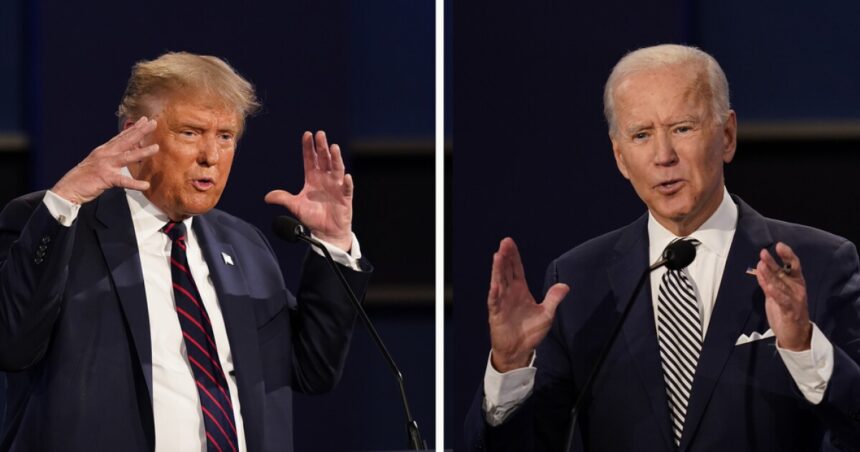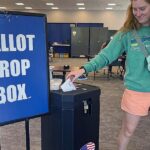Most U.S. adults plan to watch some element of Thursday’s presidential debate, and many believe it will be important for the campaigns of both President Joe Biden and former President Donald Trump, according to a new poll from The Associated Press-NORC Center for Public Affairs Research.
Both men remain broadly unpopular as they prepare to face off for the first time since 2020, although Trump, the presumptive Republican nominee, maintains a modest enthusiasm advantage with his base compared to President Biden, the Democratic incumbent.
About 6 in 10 U.S. adults say they are “extremely” or “very” likely to watch the debate live or in clips, or read about or listen to commentary about the performance of the candidates in the news or on social media.
Related: How to watch the first presidential debate of 2024
The poll suggests tens of millions of Americans are likely to see or hear about at least part of Thursday’s debate despite how unusually early it comes in the campaign season. Both Biden and Trump supporters view the debate as a major test for their candidate — or just a spectacle not to miss.
“I think it’s super important,” said Victoria Perdomo, a 44-year-old stay-at-home mom and a Trump supporter in Coral Springs, Florida. “It shows America what you’re going to see for the next four years.”
Nic Greene, a libertarian who is a registered independent, said he’ll likely vote for Trump as the “least worst candidate.” He doesn’t think debates do much to help voters make decisions, but he’s expecting to be entertained and plans to listen to post-debate analysis on podcasts.
“I think the majority of people have their minds made up with or without these debates,” he said. “It’s a circus.”
Both sides see the debate as important
About half, 47%, of Americans say the debate is “extremely” or “very” important for the success of Biden’s campaign and about 4 in 10 say it’s highly important for Trump’s campaign. About 3 in 10 Americans say it is at least “very” important for both campaigns.
Most Democrats, 55%, think the upcoming debate is extremely or very important for the success of the Biden campaign. About half of Republicans, 51%, say the same thing about the importance of the debate for the Trump campaign. Only about one-third of independents say the debate is highly important for either campaign.
Arthur Morris, a 40-year-old operations manager at a major financial firm, is an undecided voter open to President Biden, Trump or a third-party option such as independent candidate Robert F. Kennedy Jr. He sees President Biden’s debate performance as an important test.
Trump needs to show he can be trusted after recent events, said Morris.
About 4 in 10 say they are likely to watch or listen to some or all of the debate live, while a similar share say they will watch or listen to clips later. Another 4 in 10, roughly, expect to consume commentary about the debate and candidate performance in the news or on social media.
Voters are still unhappy about their options
President Biden and Trump are each entering the debate with low favorability ratings. About 6 in 10 U.S. adults say they have a very or somewhat unfavorable view of both candidates.
Most Americans are dissatisfied with President Biden and Trump being their party’s likely nominees.
About 3 in 10 U.S. adults are dissatisfied with both Trump and President Biden as their party’s likely nominees. Republicans and Democrats are more likely to have a negative view of the opposing party’s candidate than they are to have a positive view of their own.
Related: Candidates make preparations for first presidential debate of 2024
About 4 in 10 U.S. adults approve of how President Biden is handling his job as president, in line with where the number has stood for the past two years.
“I do believe there has been some progress under Biden,” said Jane Quan-Bell, 70, a school librarian from Chico, California, and a Democrat.
The conflict between the Israelis and Palestinians is an especially vulnerable spot for President Biden.
The poll of 1,088 adults was conducted June 20-24, 2024, with a margin of sampling error of plus or minus 4.0 percentage points.





